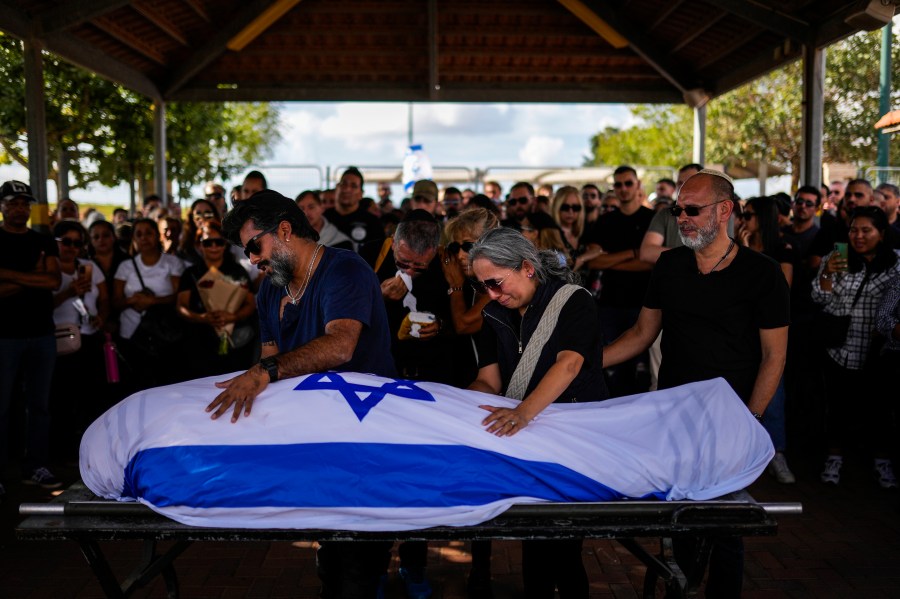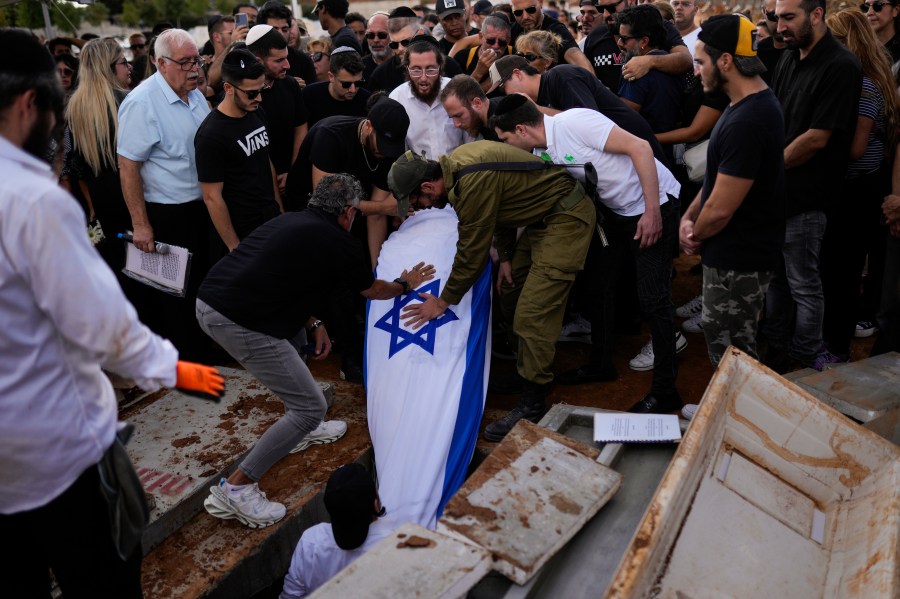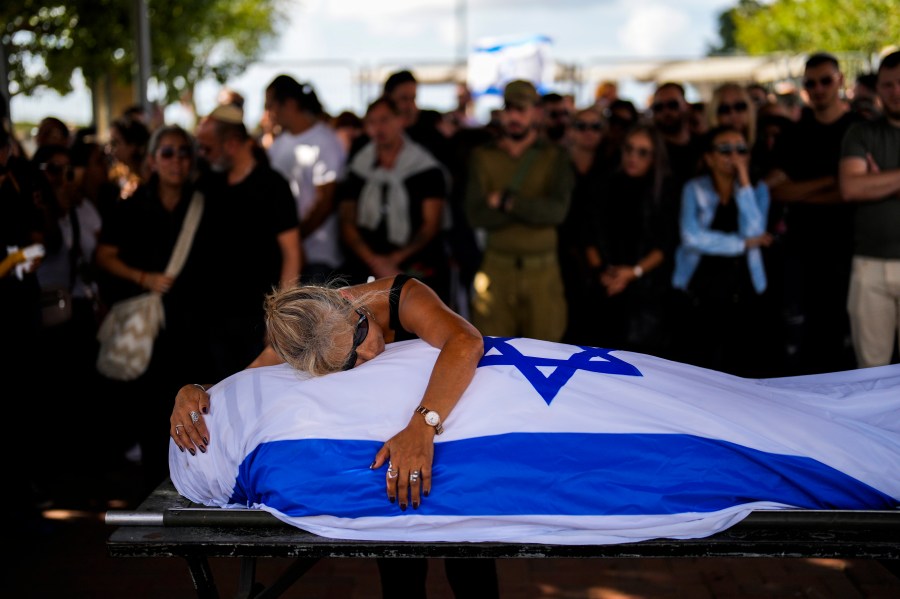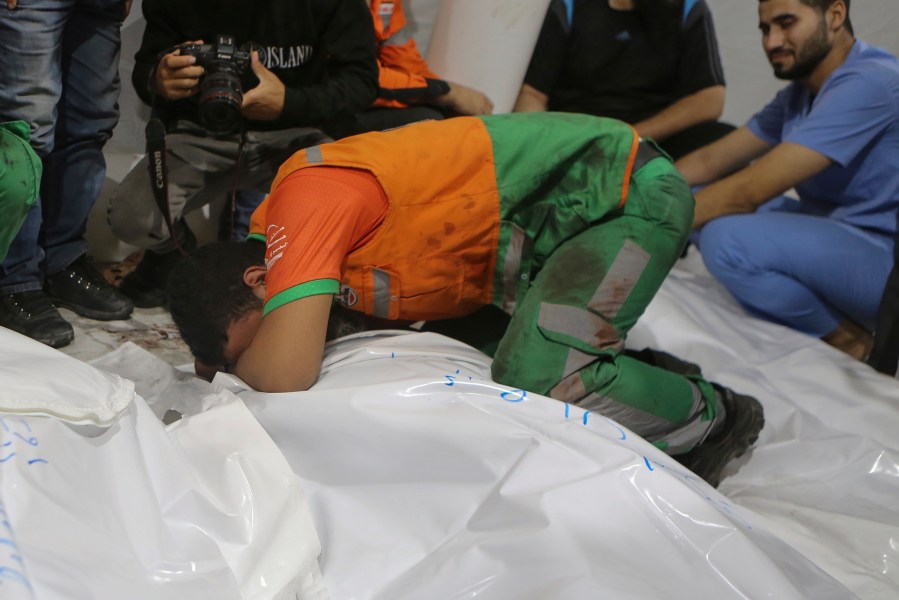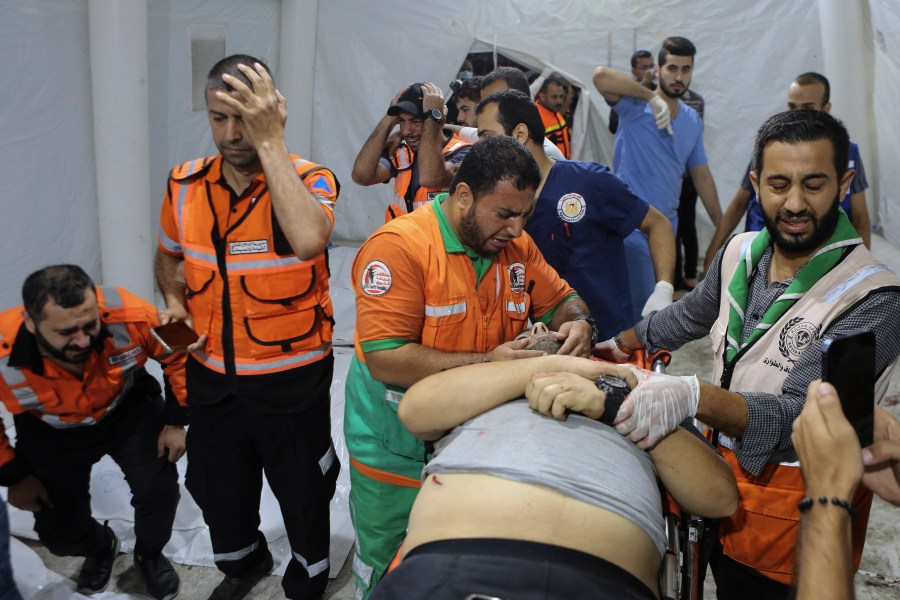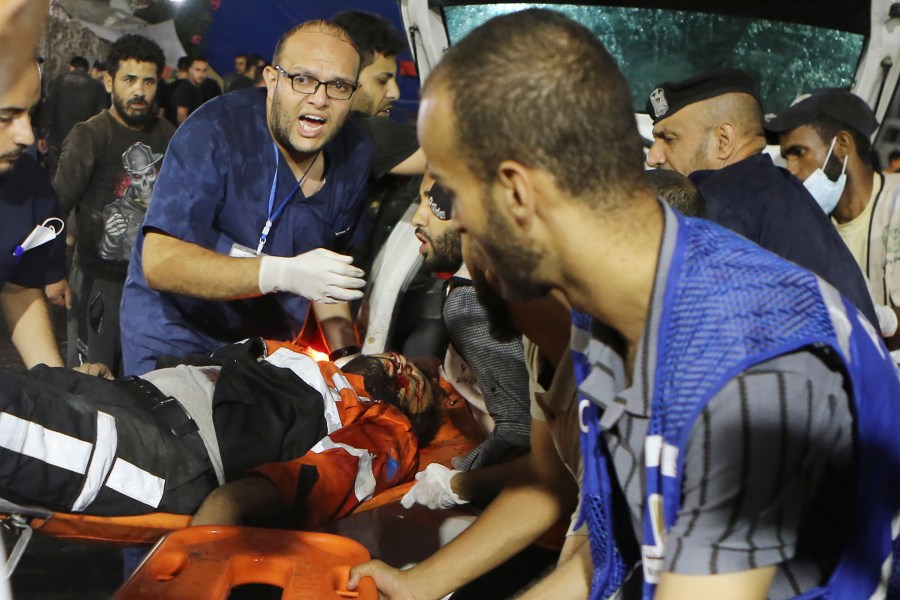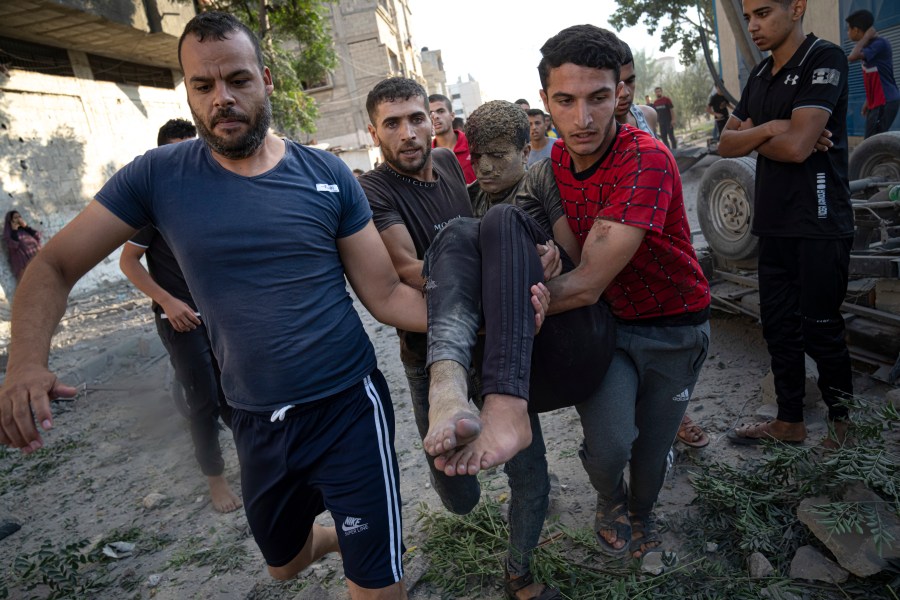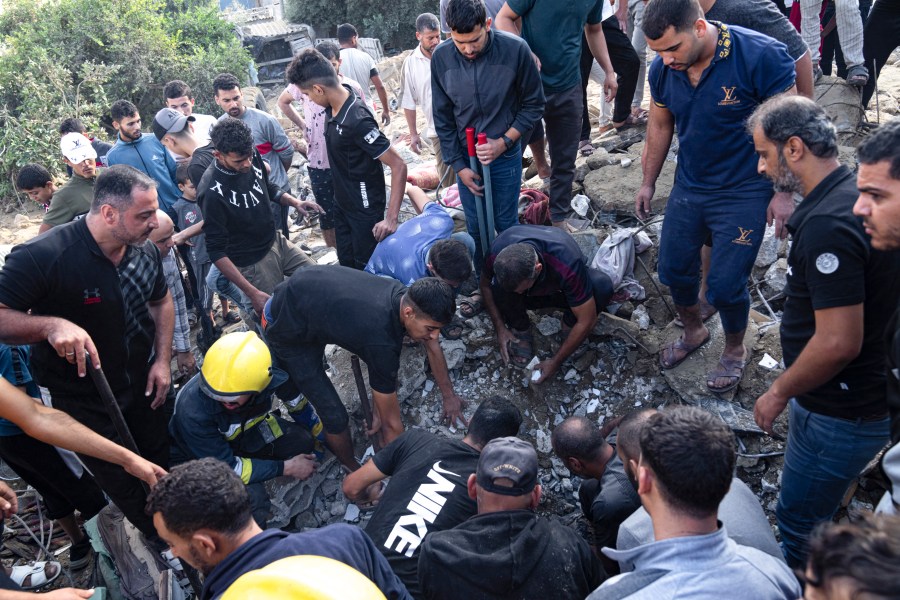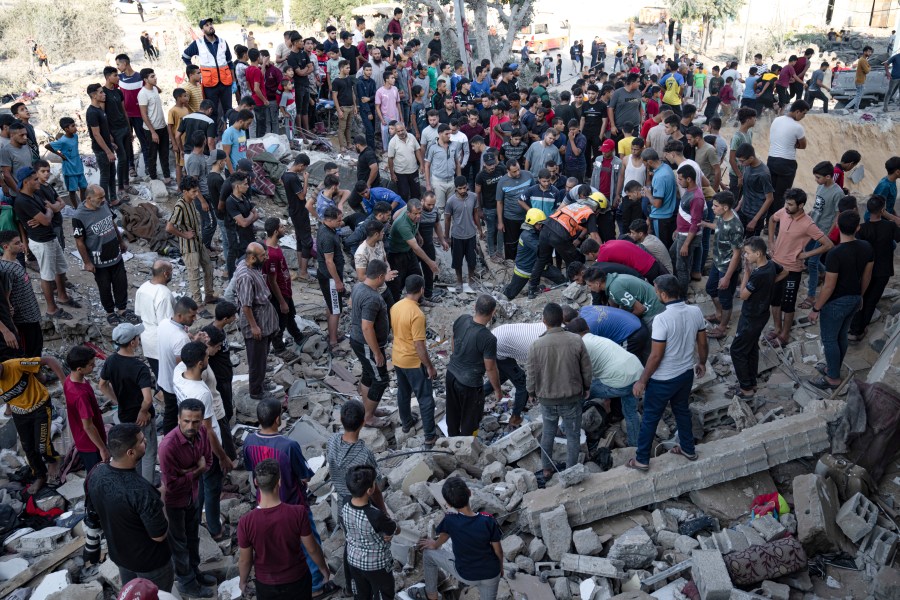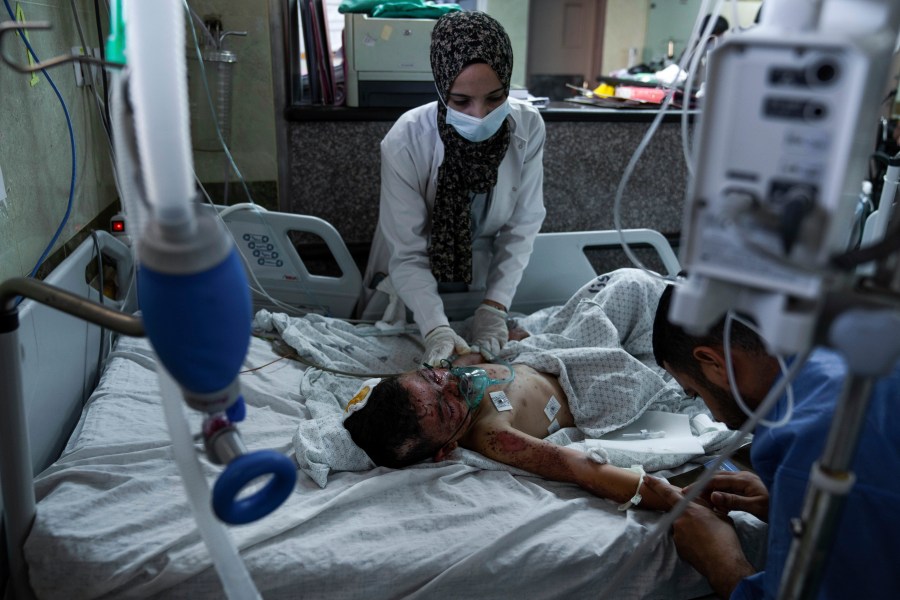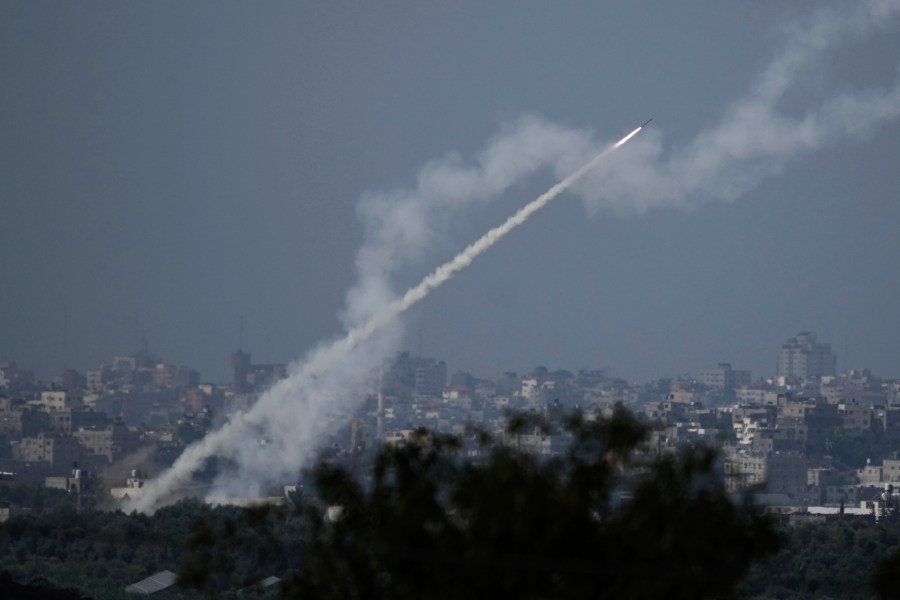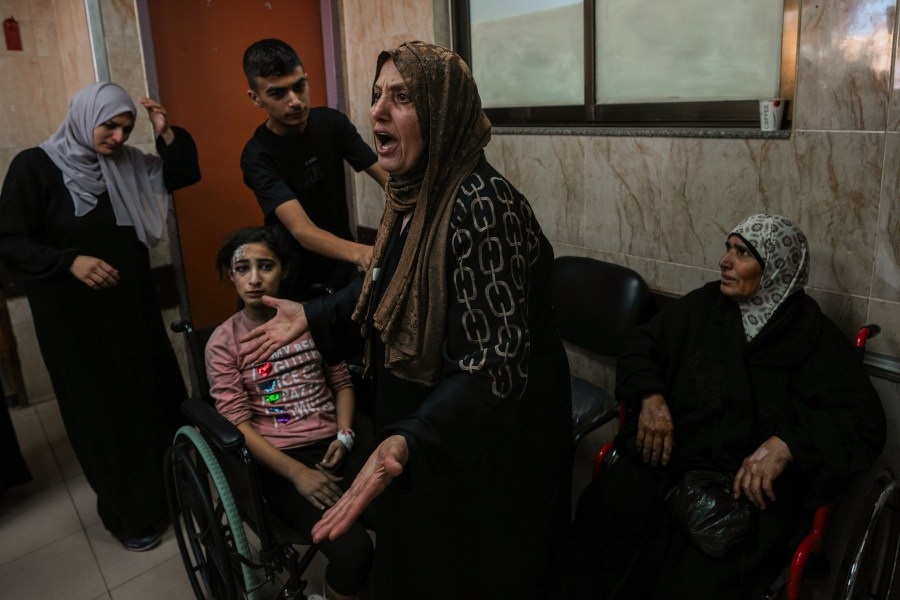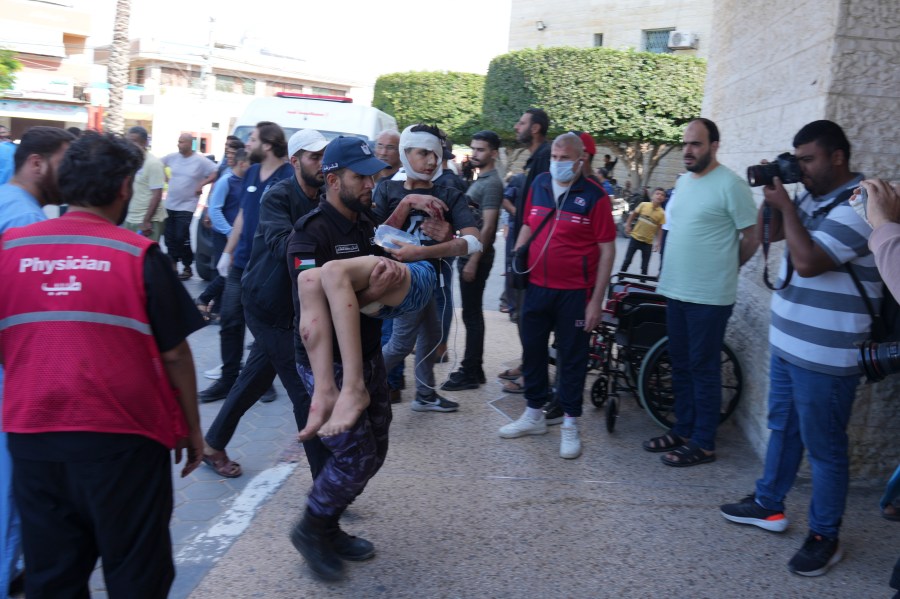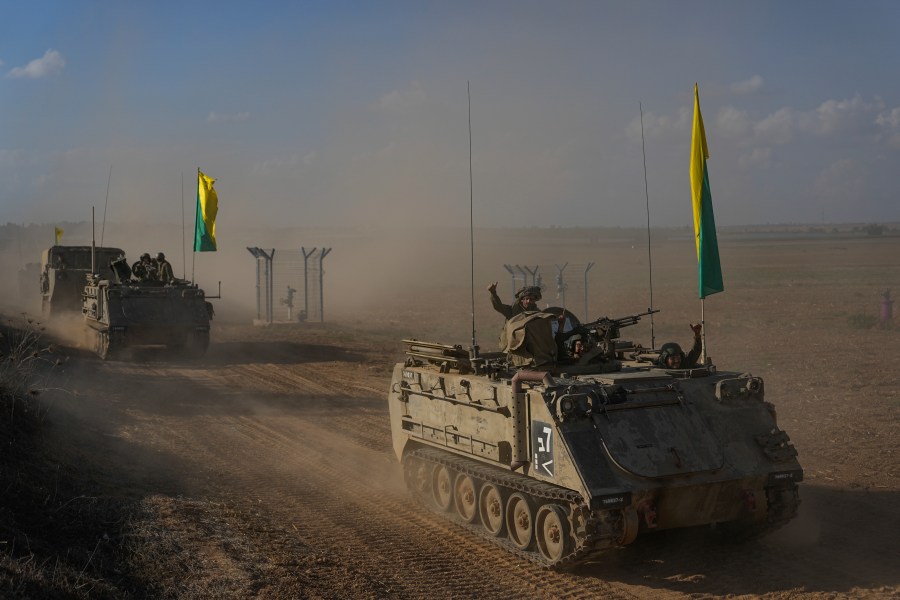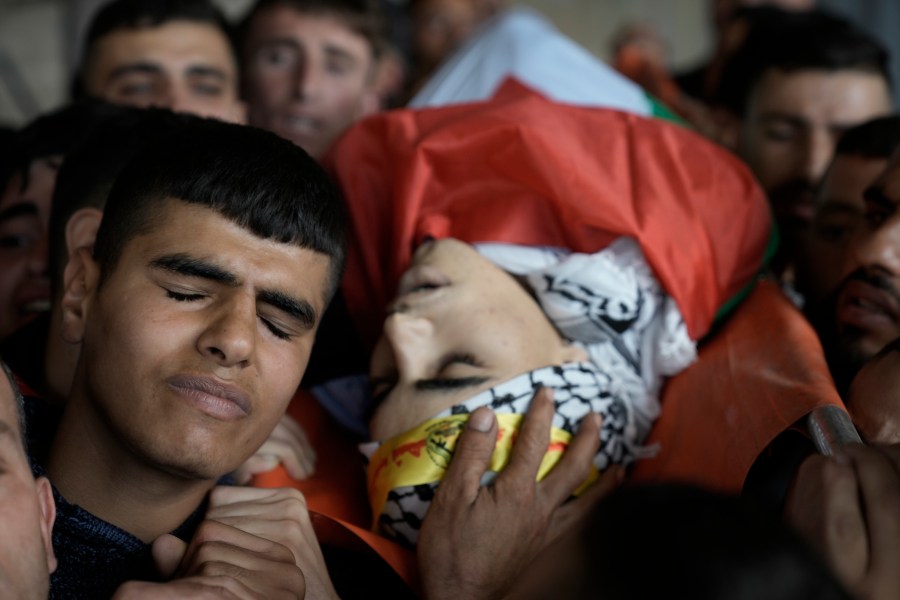Gazans told to flee amid intensified attacks despite closed border
- Civilians have been told to flee war-torn areas in Gaza, Israel
- Aid agencies warn Gaza is barely holding on amid Israeli counter-attacks
- IDF stages troops, tanks, artillery near the Gaza border
TEL AVIV, Israel (NewsNation) — The war between Israel and Hamas continues to intensify as it enters its second week of fighting.
Conditions in Gaza are deteriorating, and tens of thousands of Palestinians are still trying to flee south into Egypt. Israel warned Gaza residents to leave as it gears up for the next stages of war, planning a ground assault against Hamas. However, the Egyptian border remains closed.
Egypt is facing pressure to open its border to allow refugees to get out, while top U.S. officials crisscross the globe.
U.S. Secretary of State Antony Blinken returned to Israel for a second time in less than a week after a six-country tour through Arab nations aimed at preventing the fighting from igniting a broader conflict.
“There’s a determination in every country I went to, to make sure that this conflict doesn’t spread,” U.S. Secretary of State Antony Blinken said. “They are using their own influence, their own relationships, to try to make sure that this doesn’t happen.”
When asked why the U.S. doesn’t have troops stationed at the Rafah Gate to aid American citizens fleeing the conflict, a senior State Department official said they have been trying to get someone there.
“We have been trying. The Egyptians have told us there are acute security threats there that prevent it. So we have a team as close to the border as conditions permit — Ismailiyya,” the State Department official said.
Palestinians in Gaza crowded into hospitals and schools on Monday, seeking shelter and running low on food and water. More than a million people have fled their homes ahead of an expected Israeli ground invasion aimed at destroying Hamas after its fighters rampaged through southern Israel.
So far, more than 3,600 people have died and thousands more have been injured since Hamas launched a surprise attack on Saturday, Oct. 7. Paragliders and Hamas militants opened fire on civilians at a music festival and killed entire communities in the worst assault on Israel in 50 years.
Now, the Israeli military says it plans to expand its attack against Hamas fighters.
Images show people crammed into cars, taxis, pickup trucks and even donkey-pulled carts, while others are seen walking and carrying supplies.
Israeli airstrikes have pulverized entire neighborhoods as Palestinian militants continue to fire rockets into Israel. Israel is widely expected to launch a ground offensive in order to kill Hamas leaders, recover captives and destroy the group’s military infrastructure, much of which is in residential areas.
As the enclave’s food, water and medicine supplies dwindled, all eyes were on the Rafah crossing between Gaza and Egypt, where trucks carrying badly needed aid have been waiting for days as mediators press for a cease-fire that would allow them to enter Gaza and allow foreigners to leave. Rafah, Gaza’s only connection to Egypt, was shut down nearly a week ago because of Israeli airstrikes.
An Israeli siege has cut off Gazans from critical resources, making it difficult or nearly impossible for people to get out or receive humanitarian aid.
Hospitals in Gaza are expected to run out of generator fuel in the next 24 hours, endangering the lives of thousands of patients, according to the U.N. Gaza’s sole power plant shut down for lack of fuel after Israel completely sealed off the 25-mile-long territory following the Hamas attack.
The World Health Organization said hospitals are “overflowing” as people seek safety. “We are concerned about disease outbreaks due to mass displacement and poor water and sanitation,” it said. Four hospitals in northern Gaza are no longer functioning and 21 have received Israeli orders to evacuate. Doctors have refused, saying it would mean death for critically ill patients and newborns on ventilators.
The WHO said water shortages caused by Israel’s decision to cut off water supplies, combined with a lack of fuel for pumps and desalination stations, put thousands of hospital patients at risk.
“Water is needed to ensure sanitary conditions in inpatient wards, in operation rooms, and in emergency departments. It is essential for the prevention of hospital-associated infections and for the prevention of outbreaks in hospitals,” the WHO said.
The U.N. health agency said life-saving assistance for 300,000 patients is currently awaiting entry through Rafah.
Hundreds of thousands of Palestinians sheltering in U.N. facilities are on less than 1 liter of water per day. Hospitals warn they are on the verge of collapse, with emergency generators that power machines like ventilators and incubators down to about one day of fuel and supplies of medicine almost exhausted.
The Gaza Health Ministry said 2,750 Palestinians have been killed and 9,700 wounded since the fighting erupted, more than in the 2014 Gaza war, which lasted over six weeks. That makes this the deadliest of the five Gaza wars for both sides.
More than 1,400 Israelis have died, the vast majority of civilians were killed in Hamas’ surprise attack. The Israeli military said Monday that at least 199 hostages were taken back in Gaza, higher than previous estimates.
The military did not specify whether that number included foreigners.
In Tel Aviv, some hospitals are already preparing for the worst.
One of the country’s main trauma centers moved operations underground for the first time in history.
“We happen to be on the very top floor of the building we are in; therefore, we are absolutely vulnerable to anything that could come down from the sky,” Dr. Jacob Ablin, the head of Ichilov Hospital’s Internal Medicine Department.
Now, diplomatic efforts to address the crisis are intensifying, too.
President Joe Biden is also considering a trip to Israel, though no plans have been finalized.
The U.S. continued to show strong support for Israel, with the Pentagon deploying the USS Dwight D. Eisenhower to the Mediterranean. This aircraft carrier will join the USS Gerald R. Ford strike group that arrived in the region last week, positioning itself along Gaza’s border.
Street-by-street fighting would likely cause mounting casualties on both sides.
Hamas has urged people to stay in their homes, and the Israeli military on Sunday released photos it said showed a Hamas roadblock preventing traffic from moving south.
Hezbollah militants fired rockets and an anti-tank missile on Sunday, and Israel responded with airstrikes and shelling. The fighting killed one person on the Israeli side and wounded several on both sides of the border.
Hezbollah said it had fired rockets toward an Israeli military position in retaliation for Israeli shelling that killed Reuters videographer Issam Abdallah on Friday and two Lebanese civilians on Saturday. It said the increased strikes represented a “warning” and did not mean Hezbollah had decided to enter the war.
In the northern Israeli port city of Haifa, the U.S. government began evacuating some 2,500 American citizens by ship to Cyprus. Commercial airlines have largely stopped flying into Israel’s Ben-Gurion International Airport, making it extremely difficult to get out of the country.
In a television interview Sunday night, Biden, who has repeatedly proclaimed support for Israel, said he thought it would be a “big mistake” for the country to reoccupy Gaza.
Israel’s ambassador to the U.N., Gilad Erdan, told CNN the country does not want to occupy Gaza but will do “whatever is needed” to obliterate Hamas’ capabilities.
In Nasser Hospital, in southern Gaza, intensive care rooms were packed with wounded patients, most of them children under the age of 3. Hundreds of people with severe blast injuries have come to the hospital, said Dr. Mohammed Qandeel, a consultant at the critical care complex.
There were 35 patients in the ICU who required ventilators and another 60 on dialysis. If fuel runs out, “it means the whole health system will be shut down,” he said Sunday, as children moaned in pain in the background. “All these patients are in danger of death if the electricity is cut off.”
Dr. Hussam Abu Safiya, the head of pediatrics at the Kamal Adwan Hospital in northern Gaza, said the facility did not evacuate despite Israeli orders. There were seven newborns in the ICU hooked up to ventilators, he said. Evacuating “would mean death for them and other patients under our care.”
Shifa Hospital in Gaza City, the territory’s largest, said it would bury 100 bodies in a mass grave as an emergency measure after its morgue overflowed. Tens of thousands of people seeking safety have gathered in the hospital compound.
Israeli forces, supported by a growing deployment of U.S. warships in the region and the call-up of some 360,000 reservists, have positioned themselves along Gaza’s border and drilled for what Israel said would be a broad campaign to dismantle the militant group. Israel said it has already struck dozens of military targets, including command centers and rocket launchers, and also killed Hamas commanders.
The Associated Press contributed to this report.





